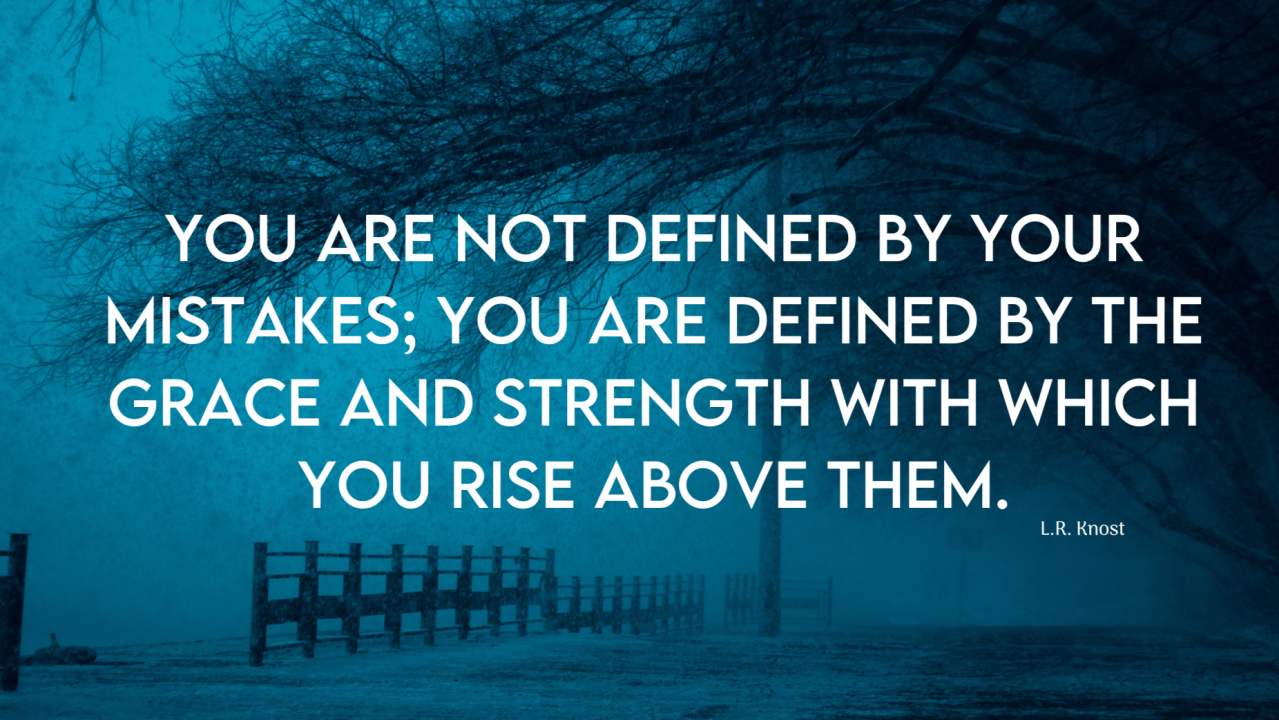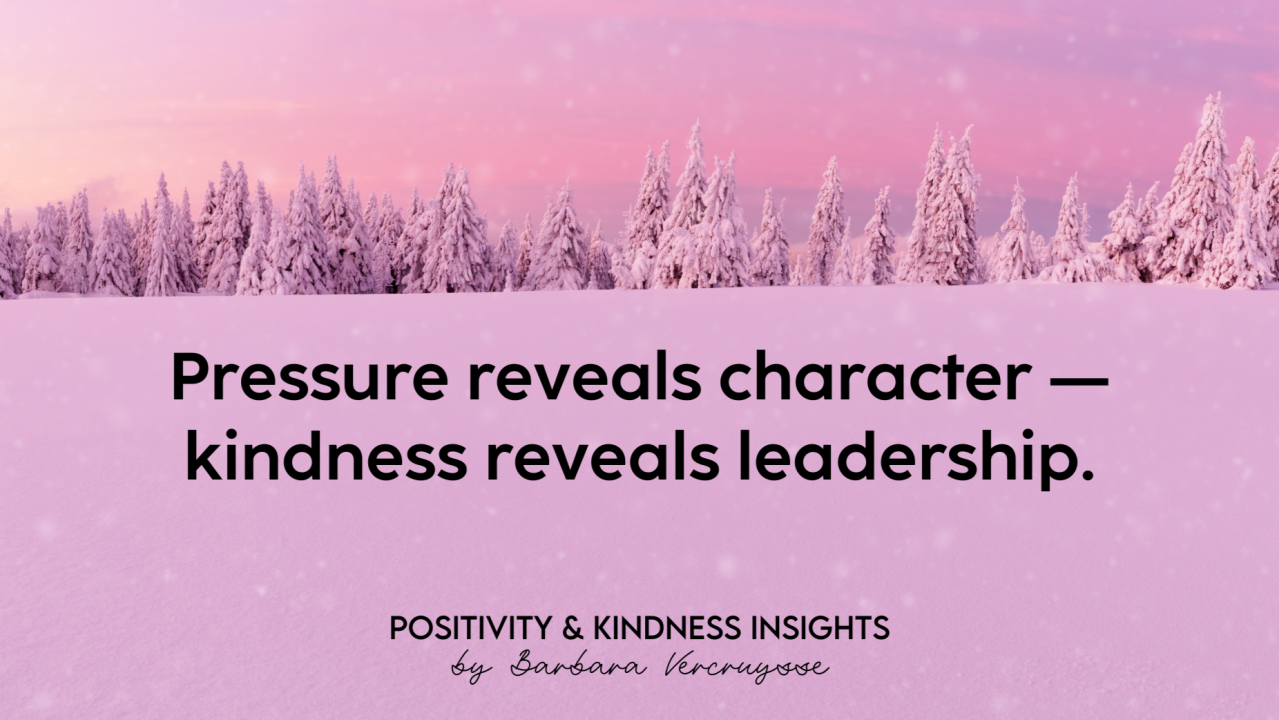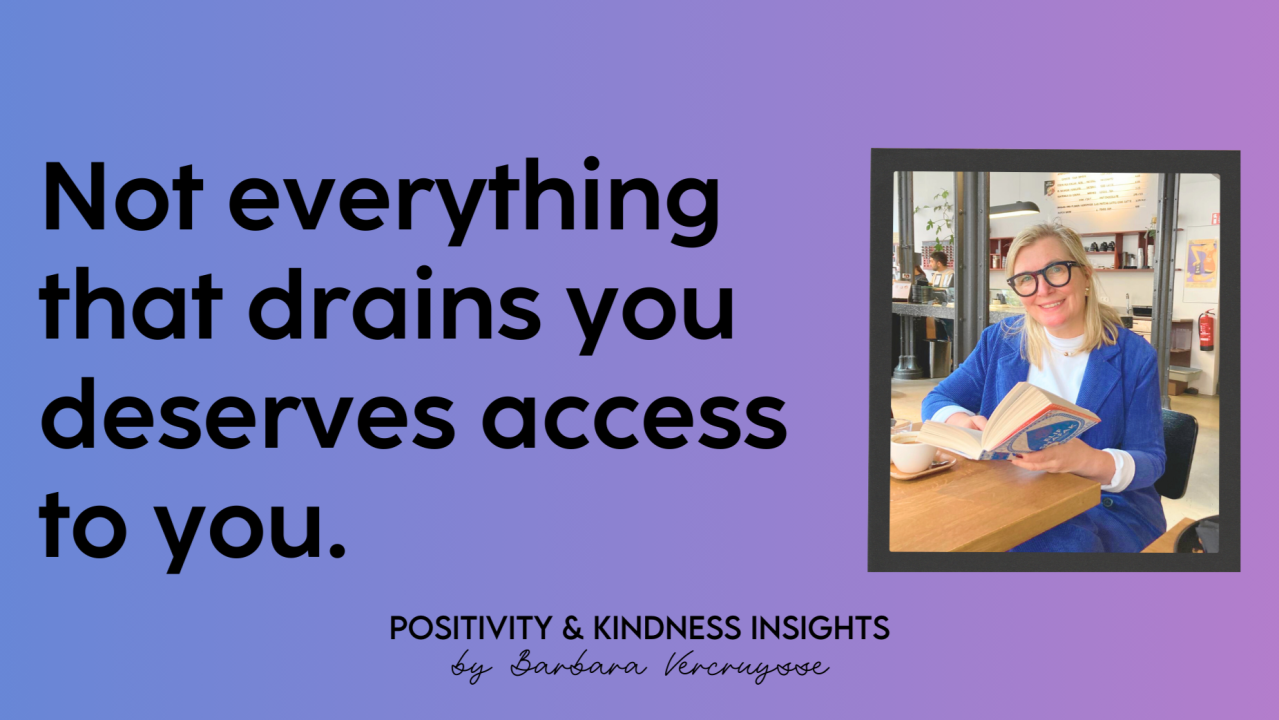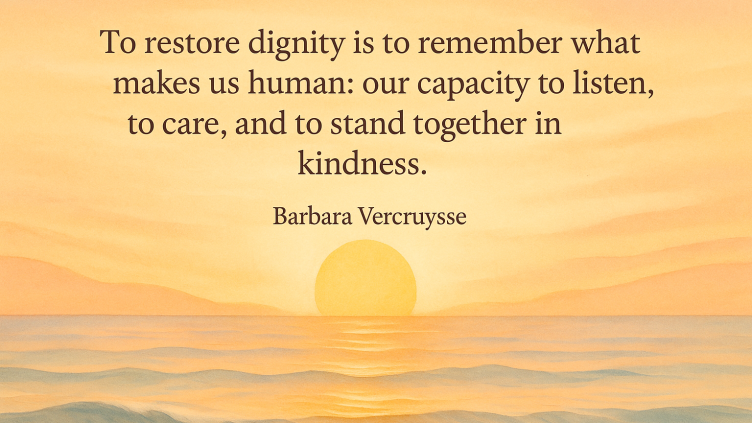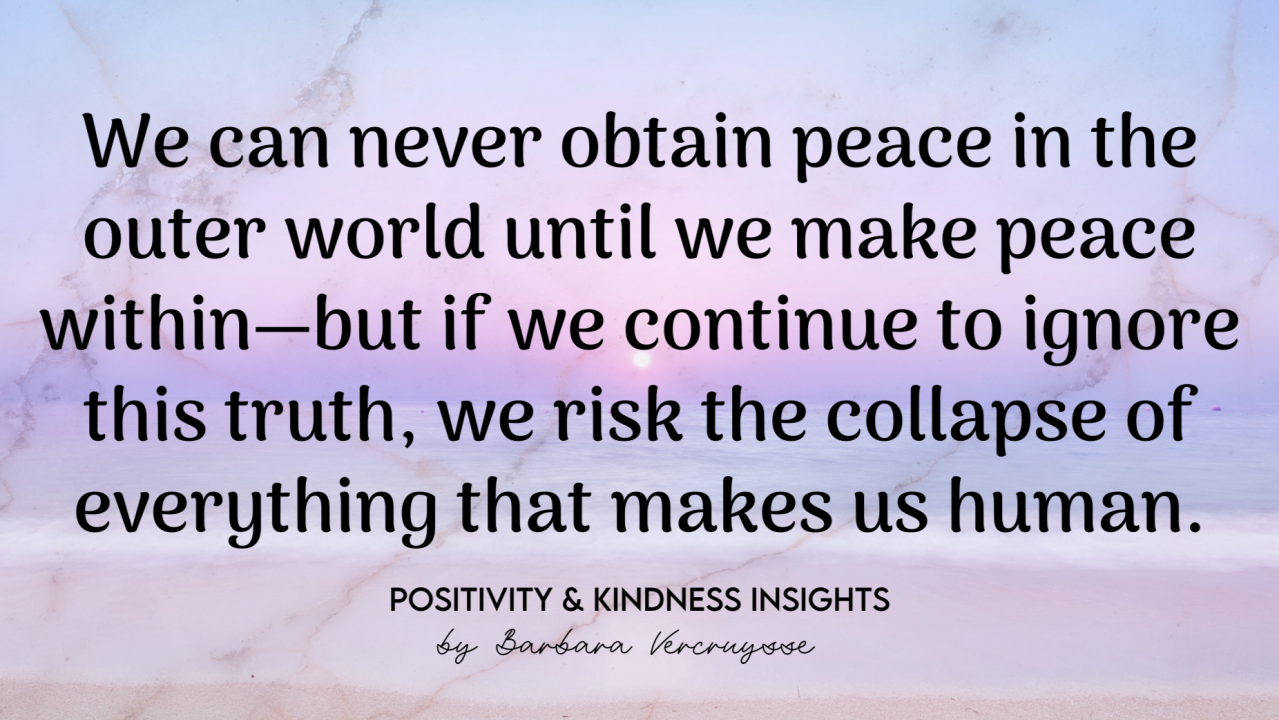Discover the Power of Self-Compassion: A Journey to Greater Self-Awareness and Personal Growth
What if the key to unlocking your greatest potential wasn’t about doing more, achieving more, or being more, but about simply being kinder to yourself? Self-compassion is not just a concept; it’s a transformative way of being that can lead to profound personal growth and inner peace. It’s about accepting yourself fully—your strengths, your imperfections, and everything in between—without judgment or condition. It’s about being your own ally rather than your harshest critic.
Many of us, however, struggle with self-doubt and a persistent inner critic that tells us we’re not enough. This lack of self-compassion often limits our potential, affects our mental health, and makes life’s challenges harder to navigate. Imagine what could change if, instead of tearing ourselves down, we built ourselves up through kindness, patience, and understanding. Self-compassion isn’t a luxury; it’s a necessity for emotional resilience, mental clarity, and overall well-being.
When Pressure Rises, Kindness Leads: The Quiet Strength of Compassion
In a world where expectations often speak louder than our inner voice, it’s easy to feel pulled off course.
Pressure can come from everywhere: family, peers, social norms, cultural traditions, or the invisible rules of “what a good life should look like.” It can show up when you choose a partner others don’t approve of. When you take a career path that doesn’t match your parents’ dream. When you decide to walk away from a role, a label, or a lifestyle that once felt safe — but no longer feels true.
And sometimes the weight of these external expectations becomes so heavy that it doesn’t just influence our decisions… It starts shaping our identity.
Yet here’s a nuance we often forget: pressure isn’t always harmful. At times, it can be protective. It can invite reflection. It can help us avoid impulsive choices.
The real question isn’t whether pressure exists. The question is: How do we respond when it does?
Even more importantly: How do we remain kind and compassionate when we feel misunderstood, judged, pushed, or controlled?
Because that… is the real leadership.
Staying true to yourself while remaining kind to those who don’t understand you is not easy. But it is possible. And I believe it is one of the most powerful forms of inner freedom.
Balance is not time-management — it’s identity (And the real reason you struggle with balance is not your calendar.)
We often speak about balance as if it were a technical problem to solve. As if the answer were another productivity hack, a smarter calendar, a new app, a more perfect morning routine. But most people don’t struggle with balance because they lack planning. They struggle because they haven’t learned to prioritize self-respect over performance culture.
Because when your identity is built around being “the one who delivers,” slowing down feels irresponsible — almost like failing.
Thriving in Leadership: Why Your Mental and Physical Well-Being Matter
Leadership is not a title — it is a responsibility, a deep inner calling. It asks of us clarity, courage, compassion, and consistency. From the outside, people often see the results: the achievements, the presence, the impact. But behind the scenes, leadership can be demanding and energy intensive. It requires a mind that remains clear under pressure and a body that can sustain long days and demanding decisions.
Kindness: Humanity’s Next Leap Forward
As we honored World Kindness Day — a day that reminds us of something simple, yet profoundly powerful: the capacity within each of us to care.
We often see kindness spoken about in gentle tones — as if it were something soft, secondary, or sentimental. But I’ve come to believe that kindness is one of the most advanced forms of intelligence. It’s not a reaction — it’s a conscious choice, a deliberate way of being that reflects the highest potential of humanity.
Kindness Matters: Raising Confident, Caring, and Compassionate Children
When I look back at my own journey, I realize just how much kindness has shaped who I am. As a child, I often felt like I didn’t quite fit in. I was told I was “too kind,” but instead of dimming my light, I held onto it, knowing that kindness could be a force for good in the world. Now, more than ever, I believe kindness is not just a virtue but a necessity, especially when it comes to raising the next generation.
Building a Positive Legacy: A Reflection on Jane Goodall’s Life
“You cannot get through a single day without having an impact on the world around you. What you do makes a difference, and you have to decide what kind of difference you want to make.” – Jane Goodall
Finding Fulfillment through Giving
Giving has always been a source of profound fulfillment for me. It carries a paradoxical quality: the more we give, the more we receive. Joy, when shared, is multiplied. Acts of kindness ripple outward, often in ways we cannot fully see, touching lives we may never meet. In this sense, giving is not a subtraction of what we have but an expansion of what we are.
Giving connects us to the vibration of abundance, reminding us that life is never meant to be hoarded but to be shared.
And yet, we live in times where indifference to the struggles of others seems increasingly present. Perhaps it stems from overstimulation, from an endless flow of information that dulls our sensitivity, or from the pace of life that leaves little room for reflection. Whatever the cause, the risk is the same: we become disconnected not only from others but also from ourselves. For to remain indifferent is to forget our own essence.
Rising Above Self-Doubt: Discovering the Strength You Already Carry
We all know the voice of self-doubt. It whispers in moments of transition, lingers when we step into new challenges, and often shouts when we dare to dream bigger than our current circumstances.
And yet—self-doubt, while universal, is not an accurate reflection of our true capacity.
History has shown us countless examples of individuals who achieved extraordinary things not because they were fearless, but because they chose to act despite their doubts. From leaders who reshaped societies to innovators who transformed industries, their journeys were not defined by the absence of insecurity, but by the presence of courage.
I know this from my own journey. When I was rebuilding my business, or standing for the first time in front of a large audience, self-doubt was loud. In those moments, I kept repeating to myself: “This has been done before. If someone can do it, so can I.” Later in life, I learned to recognize self-doubt for what it truly is — a voice in my head, not a truth. And like every voice, I could choose whether or not to listen.
Kindness as a Compass: Choosing a Future Worth Passing On
In my article two weeks ago, I explored the important difference between kindness and people-pleasing — how kindness requires courage, clarity, and boundaries, not self-sacrifice at all costs. Last week, I wrote about the urgent need for ethical leadership and how each of us can step into that role in our own sphere of influence.
Today, I’d like to bring these ideas together and ask: What if kindness became our guiding compass for the choices we make — not just for ourselves, but for the generations who will inherit the world we shape today?
Where Have All the Ethical Leaders Gone?
There are moments when I watch the world news and feel a deep sadness. Wars that destroy lives and futures. Leaders who weaponise fear. Policies that value profit over people. It can feel as if humanity is adrift, its moral compass spinning without direction.
And yet — I refuse to despair.
Because history teaches us that moments of moral crisis can also be turning points. They can be the catalysts that awaken us to the urgent need for a different kind of leadership — one rooted in ethics, empathy, and long-term responsibility.
We live in an era of unprecedented technological progress — yet our ethical foundations seem more fragile than ever. We see leaders more focused on winning the next election than on safeguarding the next generation. We see strategies driven by short-term gains rather than long-term stewardship. We see power often untethered from responsibility.
Kindness or People Pleasing? A Truth That Took Me 40 Years to Learn
It took me more than 40 years to realise this simple yet life-changing truth: I can be kind—and still say no.
For the longest time, I believed that being kind meant always saying yes, always accommodating, always making sure no one was ever disappointed or uncomfortable around me. I confused kindness with people pleasing. But over time—and with deep reflection after many painful experiences —I’ve come to understand that these two couldn’t be further apart.
People pleasing comes from a place of fear, insecurity, and self-abandonment. You give your power and authenticity away to chase the approval of others. You become overly dependent on appreciation and validation, believing—sometimes unconsciously—that your worth is tied to being liked or accepted.
I’ve lived that life. And it’s exhausting.
Responding to Rudeness with Kindness: A Sign of Maturity and Strength
These days, it feels like we’re surrounded by stress and frustration—and it doesn’t take much for misunderstandings to turn into rude behavior. Whether it’s at work, at home, or just out in the world, we’re often confronted with this kind of behavior. And with media and social media constantly amplifying negativity, it can start to feel like rudeness and arrogance are everywhere.
Yet, how we choose to respond to this negativity defines us more than the behavior we encounter.
Building a Life of Purpose
I believe that every human being is born with a unique and meaningful purpose. We are not here by accident. Each life has value, and within that value lies potential—potential to make a difference, to touch lives, and to serve something greater than ourselves.
Yet, in the chaos of daily life—paying bills, raising families, pursuing careers—many of us lose sight of this truth. We find ourselves in a constant race for survival. And often, it’s only when life jolts us—through loss, suffering, or major change—that we pause and ask the deeper questions: What is my purpose? Why am I here?
How Volunteering Has Shaped Me
When people ask me where I’ve learned the most about leadership, I don’t immediately point to my business education or professional experience in the corporate world. I often say: “Step into a volunteer role, and you’ll find yourself learning more about leadership than you ever expected.”
Over the past years, my journey as President of Professional Women International – Brussels has been one of the most transformative leadership experiences of my life. Leading an organization built entirely on the power of volunteers, fueled by shared purpose rather than hierarchy, has taught me about vision, humility, resilience, and influence in the most profound ways.
Bridges, Not Battles: A Path to Healing What Divides Us.
Martin Luther King Jr. once marched under a banner that read:
“Men are not our enemies. If we kill men, with whom shall we live?”
He was joined in deep moral and spiritual conviction by his friend, the Vietnamese Zen master Thich Nhat Hanh. Both understood something that much of humanity still struggles to grasp to this day: Our enemies are not other people. Our enemies are hatred, anger, resentment, fear, and discrimination.
This insight is not only timely — it is timeless. And it is perhaps one of the most urgent messages our world needs to hear and integrate today.
What If Every Leader Practiced Mindfulness?
Would our world be just a little more peaceful if every leader—political, corporate, and personal—paused each day to breathe, to listen, to be?
I believe so. When the mind settles, our words soften, our choices widen, and the ripple reaches far beyond the boardroom or the living room.
Mindfulness, in plain sight
Mindfulness isn’t incense, pretzel-poses or a luxury retreat. It’s the everyday discipline of paying gentle, non-judgemental attention—to thoughts, emotions, body sensations, and the space around us—exactly as they are, right now.
Practised consistently, it re-wires stress reactions into thoughtful responses, steadies the nervous system, lowers blood pressure, and gifts us the clarity to lead with heart instead of habit.
Divisiveness and Conflict: Destroyers of Human Dignity, Depth, and Wisdom
We are living through a time where polarization seems to dominate headlines, conversations, and communities. And yet, beneath the noise, there is something far more precious being quietly eroded: our human dignity, our capacity for depth, and our collective wisdom.
It’s easy to overlook the true cost of conflict in a world that often rewards the loudest voice or the sharpest retort. But if we pause and pay attention, we begin to see the damage—both subtle and profound—that division inflicts on our shared humanity.
The Erosion of Human Dignity
Behind every heated debate or ideological clash lies a vital question: Are we honoring each other's humanity, or are we diminishing it?
Too often, conflict morphs into dehumanization. Instead of seeing the person before us as a whole being—with dreams, struggles, and a need to be seen—we reduce them to an opposing side. An obstacle. A threat.
This kind of divisiveness chips away at the core of human dignity. And dignity, I believe, is not optional—it is the soil from which respect, empathy, and understanding can grow. As I share in The Path of Powerful Kindness, it is through everyday acts of kindness that we choose to uphold each other’s dignity. That we affirm: you matter, just as you are.
When We Lose Depth, We Lose Each Other
In a culture built on instant reactions and short attention spans, we are often quicker to respond than to understand. But real depth—true connection—demands more of us. It asks for listening beyond words. It requires slowing down, being present, and holding space for the complexity of others.
Divisiveness thrives on the superficial. It thrives when we trade understanding for judgment and presence for performance. When we choose conflict over curiosity, we flatten one another into caricatures. But when kindness enters the room, depth returns. We begin to see each other in full color again.
Wisdom Cannot Breathe in Division
Wisdom is not born from certainty—it is shaped through humility, dialogue, and shared experience. When we close ourselves off, refusing to engage with perspectives different from our own, we shut the door on growth. Isolation, fueled by conflict, breeds stagnation.
Kindness, however, opens doors. It creates bridges where walls once stood. It invites us into conversations where learning is possible and where wisdom is co-created. In unity, wisdom flourishes—not because we agree on everything, but because we remain open-hearted in the face of disagreement.
Kindness: The Path Back to Our Humanity
To rebuild what conflict and division have torn apart, we must return to the simplest yet most radical practice we have: kindness. Not the soft, passive kind. But the powerful, deliberate kind that chooses compassion over contempt. That listens instead of labels. That builds instead of breaks.
Kindness is not weakness. It is a conscious act of courage. And it is how we reclaim what’s been lost—our dignity, our depth, our collective wisdom.
The path of powerful kindness is not just an ideal; it’s a choice we make, moment by moment. A choice to heal rather than harm. To connect rather than conquer. To lead not with fear or fury—but with presence, respect, and heart.
In a world aching for connection, may we choose that path—again and again.
With kindness, Barbara.
For more informationa about my work: https://www.barbaravercruysse.com/
Leadership and Decision Making: The Quiet Power of Critical Thinking and Intuition
Have you ever found yourself awake in the still of the night, your mind looping over a difficult decision? If you have, you’re not alone.
Leadership often means navigating complexity—and with that comes moments of doubt, uncertainty, and the quiet weight of responsibility. Decision making is a vital skill, and history is full of examples showing just how impactful—positively or negatively—our decisions can be.
While mistakes are part of any leader’s journey, how we learn from them, how we pause to reflect and grow, is where our true strength lies. And that’s where critical thinking becomes such a powerful ally.
But for me, it doesn’t stop there.
Peace Begins Within
Every day, we are confronted with new headlines—more violence, more war, more division. From the renewed tensions between India and Pakistan, to the devastating wars between Russia and Ukraine, Israel and Palestine, to the ongoing suffering in Sudan and Yemen—we are witnessing a world that seems to have forgotten one fundamental truth:
Outer peace is impossible without inner peace.


